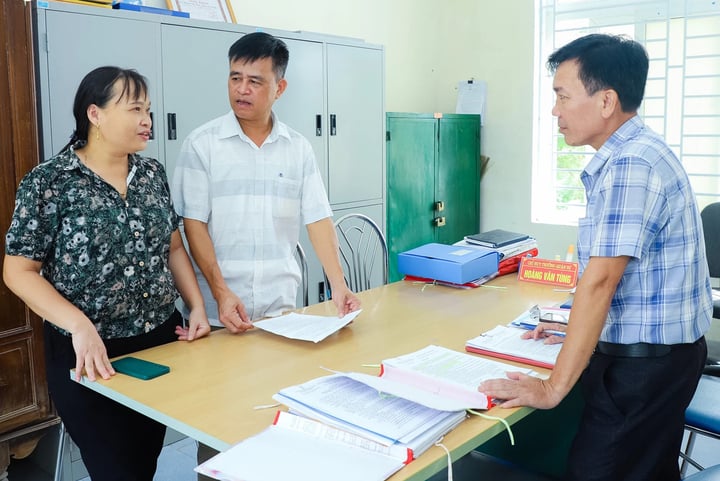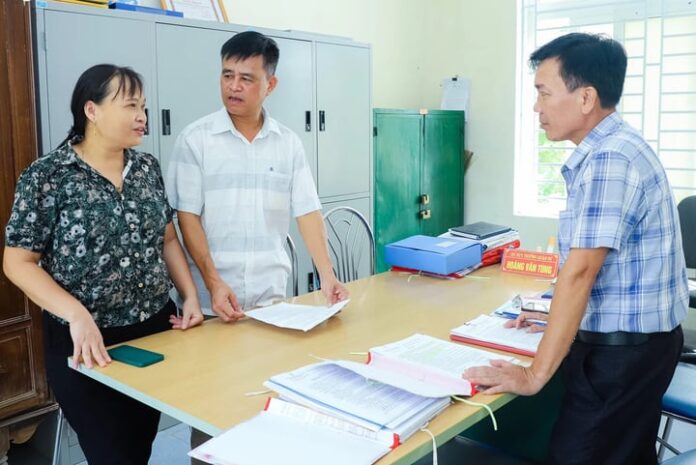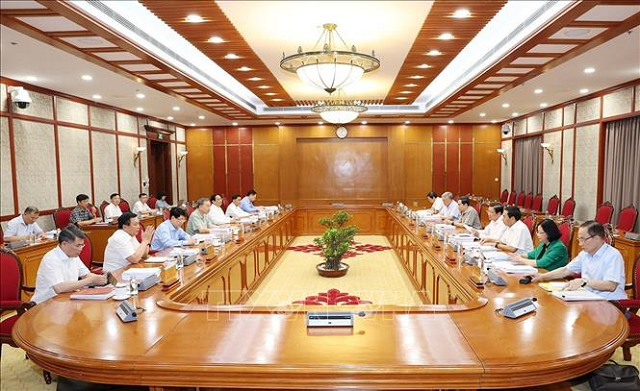The Ministry of Justice is appraising the draft Decree amending and supplementing a number of articles of the Government’s Decree No. 29/2023 on streamlining the apparatus, drafted by the Ministry of Home Affairs.

According to statistics from the Ministry of Home Affairs, as of December 31, 2021, there were nearly 300,000 non-full-time staff in villages and residential areas nationwide.
Regarding the policies for redundant non-full-time staff in villages and residential areas due to reorganization, the Ministry of Home Affairs has proposed outstanding policies compared to current regulations.
Specifically, for those who have not reached the retirement age, four simultaneous benefit schemes are offered.
The first scheme
provides immediate retirement benefits.
For those with less than five years of service, a one-time allowance of 0.8 times the current monthly allowance multiplied by the number of months worked is granted.
For those with five or more years of service and an age gap of five years or less from the retirement age, a one-time allowance of 0.8 times the current monthly allowance multiplied by the number of months retired early compared to the retirement age is provided.
For those with five or more years of service and an age gap of more than five years from the retirement age, a one-time allowance of 0.8 times the current monthly allowance multiplied by 60 months is given.
The second scheme
offers a benefit of 1.5 times the current monthly allowance for each year worked.
The third scheme
provides a three-month allowance of the current monthly allowance to support job seeking.
The fourth scheme
allows for the preservation of mandatory social insurance contribution history or a one-time social insurance benefit according to social insurance laws.
For non-full-time staff in villages and residential areas who have reached the retirement age or are receiving retirement or disability benefits, a one-time allowance of 15 months of the current monthly allowance is granted.
The Ministry of Home Affairs stated that since non-full-time staff in villages and residential areas are not subject to mandatory social insurance contributions, the calculated benefit period for these cases includes: the period of service with mandatory social insurance contributions and the period of service as non-full-time staff in villages and residential areas (without mandatory social insurance contributions).
Underperforming Civil Servants to Face Consequences: Ministry Proposes Action for Inadequate Performance
Let me know if you would like me to continue refining or provide multiple options for this headline to ensure it captures the essence of the story and attracts the right attention.
The Ministry of Home Affairs has proposed a new decree to streamline the public sector workforce. In this proposal, they suggest that officials, civil servants, and public employees who fail to fulfill their duties for a year will be subject to this downsizing initiative.
A Fresh Directive: The Minister of Home Affairs’ New Scheme for Resigning Officials.
“The Minister of Home Affairs has tasked the Department of Organization and Personnel to take the lead in coordinating with relevant units to closely monitor and regularly update the number of officials, civil servants, and public employees who leave their jobs due to organizational restructuring. This information will be proactively sent to the Ministry of Finance to facilitate budget allocation and timely additional funding for the payment of allowances and benefits to those who have left their positions as a result of the structural adjustments.”





















